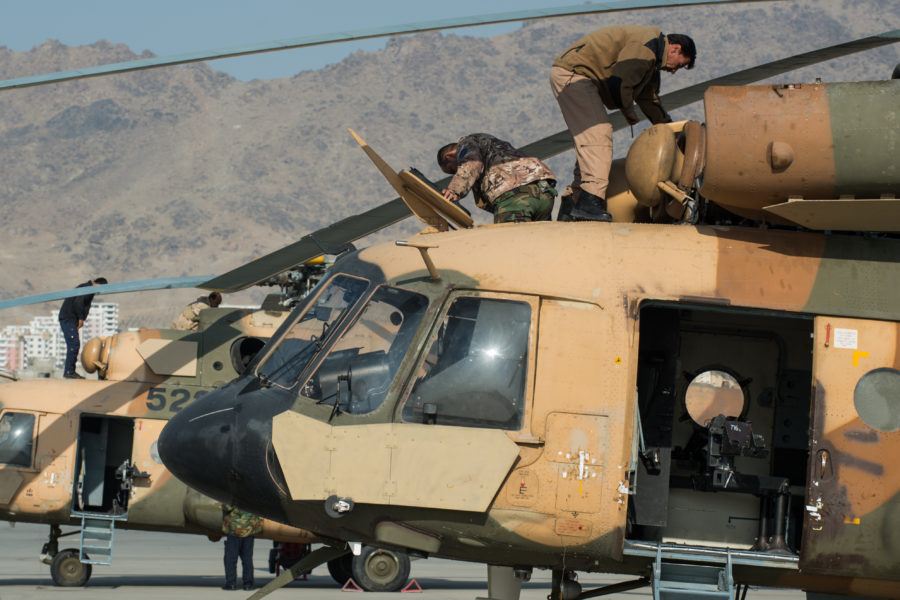U.S. Central Command is searching for “innovative” ways to help the Afghan Air Force turn wrenches on their planes after U.S. and coalition forces withdraw from the country, though the command’s boss acknowledges it’s not going to be easy.
“The U.S. contractors will come out as we come out. That is part of the plan [to] withdraw that we have in place right now,” CENTCOM boss Gen. Kenneth F. McKenzie Jr. said during an April 22 Pentagon briefing. “We’re examining alternatives to assist the Afghans in their maintenance effort from a distance. I don’t want to minimize that problem or make it appear to be easier than it’s going to be.”
There are about 17,000 contractors in Afghanistan today, and the Afghan Air Force relies heavily on U.S. contractors from companies such as Sierra Nevada Corp. to keep their aircraft flying. The contract presence is so critical that in March, John F. Sopko, the Special Inspector General for Afghanistan Reconstruction, said that without contract support, “no Afghan airframe could be sustained as combat effective for more than a few months.”
McKenzie said the Afghan Air Force has proven to be a “very, very important force multiplier for the Afghan military. They fly effectively, they deliver ordnance, and they’re actually a deal changer in many ways in the fight against the Taliban.”
He is concerned because the airplanes require continuous maintenance from trained maintainers, and “if we leave, we’re gonna have to find a way to replace them.”
“Aircraft maintenance, … you have to do it every day,” he said. “It requires engagement every day in order to do that.”
Remote video conferencing with U.S. contractors living outside the country is one option being considered to help Afghan maintainers work on the aircraft, while in-depth maintenance can be done at a centralized location.
“We’re going to try all kinds of innovative ways,” McKenzie said. “The one thing I can tell you is we’re not going to be there on the ground with them. We want them to be successful, that remains a very high priority.”
